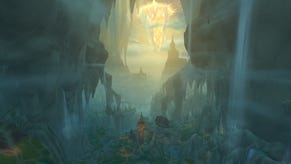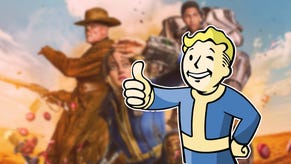Adam Boyes Doesn't Miss the Console Wars
At DICE 2020, Adam Boyes tells us about maintaining Iron Galaxy without crunch, developing ports, and more.
This article first appeared on USgamer, a partner publication of VG247. Some content, such as this article, has been migrated to VG247 for posterity after USgamer's closure - but it has not been edited or further vetted by the VG247 team.
Seven years ago, Adam Boyes was under a lot of pressure. He was Vice President of Publisher and Developer Relations at Sony Interactive Entertainment still, though then it was pre-merged Sony Computer Entertainment. And in 2013, Sony was gearing up for the launch of the PlayStation 4.
But now, Boyes doesn't have to worry about all that. "It's super not stressful," he laughs as he tells me at DICE 2020. He's now the CEO of Iron Galaxy, after joining the game developer in 2016. Three and a half years later, and Boyes is comfortable on the other side of things. He doesn't even think about the PlayStation 5 and Xbox Series X launches on the horizon. "Sometimes I feel like I have an opinion, but it doesn't matter because I did that. I put in my all. I loved it. Built an incredible team, had an incredible experience. [...] So you think that I would have a FOMO that I'm not part of it, but it really isn't. There was so much stress and I think the whole console battle concept, it takes you over. It's like, that's all you think about."
Based in Chicago, Iron Galaxy is currently helping build games for next-generation platforms. But, of course, Boyes can't talk any specifics as of now, even if he is excited about it. Iron Galaxy itself is something of an anomaly in the industry. It's a jack of all trades studio that's dabbled in publishing (Videoball), support game development (Fallout 76), ports (Diablo 3, The Elder Scrolls 5: Skyrim), and even its own original games, like 2018's Extinction and 2013's Divekick. Moving forward, Boyes says Iron Galaxy hopes to double down on original projects in particular.
"[W]ith [Extinction], I think that was more of a spec thing where the publisher had a perspective and a point of view on a game they wanted to make," says Boyes. "What we want to do is we want to flip that script a little bit and go to our design team and our creatives and be like, what do you want to make? So a lot of our games now are being born out of that idea versus just a spec concept that somebody asked us for. It's really leaning into what are our strengths as a company. Obviously melee combat is a big strength. Graphics and performance is a big strength. Online multiplayer is a big strength. So a lot of the new concepts and ideas we're working on are sort of utilizing those strengths and those areas."
A lot of Iron Galaxy's original team came from Midway, so its strength in the melee department is a no-brainer considering the lineage of Mortal Kombat. In 2015, Iron Galaxy took over lead development on Microsoft's Killer Instinct for its second and third seasons. The experience, Boyes tells me, was particularly formative for the studio.
"That one was fascinating because it was really a first on a couple fronts. It was the first sort of free-to-play game on the Xbox console. The second thing is it was weird delivering content every month. So we think about that 7, 8 years ago, it was very rare for studios to be doing that. So it taught us a lot about discipline. Being able to put out characters every single month; learning from the audience. Talking to them, engaging with them." The importance of being transparent, from a community management perspective, was one of the biggest lessons Iron Galaxy learned from Killer Instinct. Boyes credits Iron Galaxy's work on Killer Instinct as building trust not with just Microsoft, its co-director, but also trust from other clients. Its work on Killer Instinct's live service aspects, for instance, led to Bethesda and Zenimax trusting the studio to handle the Elder Scrolls Online port to console.
"They would have never done that, I don't think, unless we had those live service experience," says Boyes. "So it's now led the way. Now I feel like we're one of the forefront developers that are very, very competent in the games as a service and live services type of products."
Iron Galaxy is at the forefront of ports, period. Like the other port stewards of the world, Iron Galaxy's sights have lately been on Nintendo Switch. Iron Galaxy's handled wholly or assisted with ports for Overwatch, Diablo 3, and Skyrim, among others. Boyes says the process of working with publishers like Blizzard and Bethesda has been highly collaborative, with both sides bouncing ideas off one another.
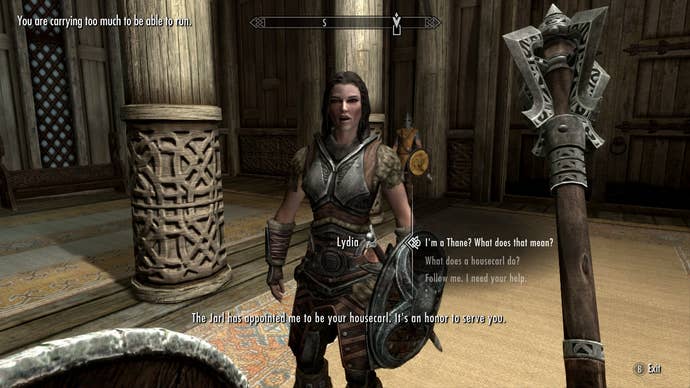
"Even Skyrim too, we did the gyro aiming as well," says Boyes, in regards to the motion-controlled aiming that was included recently in Overwatch's Switch port. "And that was one of those things where we had prototyped some of those ideas and then brought it to Todd Howard, and he just fell in love with that concept."
Diablo 3's four player co-op, with support for four controllers at once on one machine, was another unique capability on Switch that Iron Galaxy pursued with encouragement and support from Blizzard. The secret to a great Switch port, he says, really boils down to a "passion" for the console itself and ensuring the game feels organically great, as if that platform was its home all along. "I think [the process has] evolved a lot," he adds. "I think if we go back 10 or 15 years ago, work for hire was very much, 'please fulfill this problem or fix this one thing.' And now it's more about people [who] come to us and they trust our opinion, and they want to hear more about what things we could do to help make their product better."
Iron Galaxy itself was founded in 2008 by Dave Lang, who is currently the Chief Procurement Officer of the studio alongside Chief Operating Officer Chelsea Blasko. Early on Lang established a policy that's unfortunately not the norm for most studios: it doesn't crunch.
"[H]e started, like I said, 11 and a half years ago and all the studios he had worked with previously crunched, and same with all the ones I worked at," says Boyes. "I remember when I went from Midway to Capcom, and everyone was leaving at 6:30 at night, I thought that I was being Punk'd. I was like, 'what are you talking about? Why is everyone so lazy? Everyone should be here till 9 or 10.' And it took me years, 'cause when we think about when we start in the industry, we pushed and it was really about—when they say it's not a mandate from the top, but there's a culture of crunch and peer pressure, of like, 'oh, you weren't there last night, what are you, a part-timer?' That permeates, and it's very difficult to peel back. I think you almost only can do it if you do it from scratch."
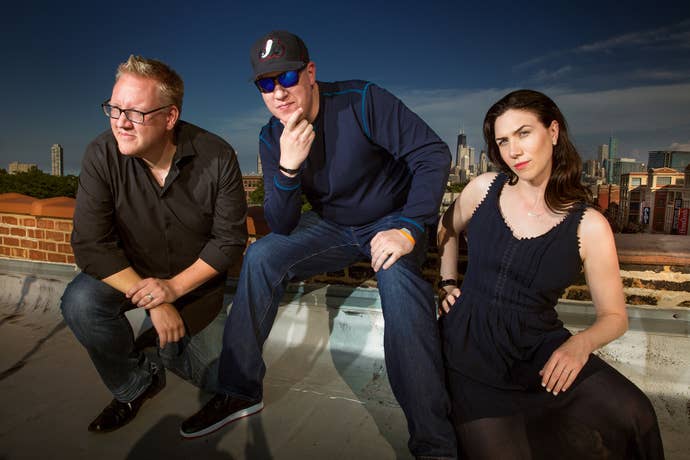
At the start of Iron Galaxy, Boyes says Lang "absolutely" crunched when the team was about 10 people. It was only when the studio blossomed to 30, 40 that he "put his foot down" and enacted a no crunch policy, ensuring that all employees get to go home at 6 p.m. or 7 p.m., depending on when they start work that day. It's a policy that's even interfered with some potential contracts with clients.
"[W]e've had publishers in the past that tried to say, 'hey, we need weekend coverage or nighttime coverage,' and we just decline those contracts. Or we do split shifting, but it's very rare," he says. "So by enforcing it through the kind of partnerships that you make and by fulfilling that promise with the employees, everyone's out of there at 6 or 7, and that is super, super important. So, yeah, you're right, it is an anomaly. I think a lot of studios say that they're changing, but I think it's extraordinarily hard to change that sort of peer pressure culture, unless you start from the ground up."
Boyes highlights the importance of setting an example to encourage an anti-crunch culture—like how he wants to have dinner with his own family every night, not to be working late in the office. He also notes how keeping a happy and healthy work environment extends beyond just forbidding late work hours. From supporting employees if they're going through a rough personal issue, or just having good benefits are examples of how Iron Galaxy has vowed to define itself as an uncharacteristically healthy development studio.
The studio has grown astronomically too. With over 120 employees now, Boyes says the studio has worked on as many as 13 projects at once, and shipping numerous games a year at that. Last year alone it shipped the PC port of Spyro: The Reignited Trilogy and the Switch port of Overwatch.
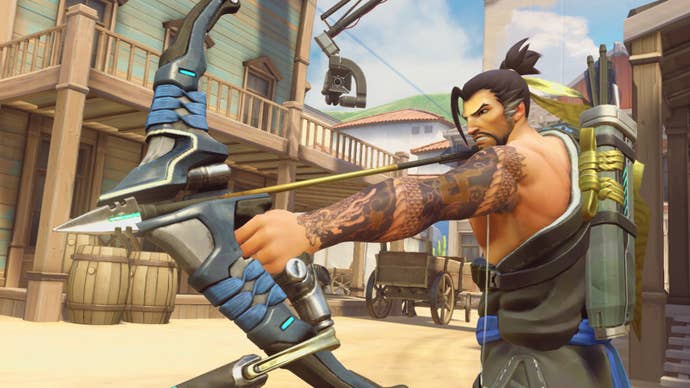
"[W]e're not trying to convert and become Bungie," he says. "That's not the masterplan. The work for hire stuff that's sort of built our company for the last 11 and a half years has created stability. We've never had layoffs as a company. We don't crunch. We're impervious, even though we were working on 7 Days to Die last year when Telltale went out of business. [Ed. note: Telltale shuttered in 2018.] So we got impacted, but we didn't lay anyone off because we deployed them to other projects. That stability cornerstone is such an important part of who we are, and that's because of the work for hire stuff."
The industry, naturally, can be an inspiring place. Sometimes for good, or in the case of the prominence of crunch in most triple-A studios, for bad. As for Iron Galaxy's original creative endeavors it's looking to in the future, it doesn't plan to abandon the work for hire business model that's helped the studio remain stable. Part of the reasons why work for hire works for it, in fact, is due to the inspiration working with other developers gives them themselves.
"I think through the years, when you work with so many different partners and clients, you just learn to be a good partner in crime. Like, I say we're the best co-pilots in the industry, because you're just always working with other people and there's always something to learn," says Boyes. "Whether it's a process or procedure; whether it's a technique or technology. Or whether it's like how they manage their people, how they inspire their people. There's so many takeaways from different things."
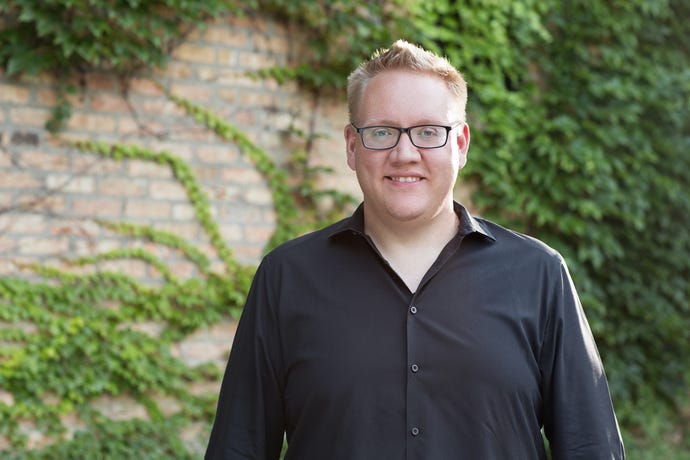



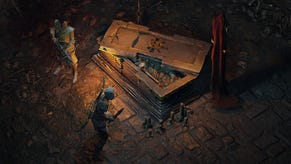
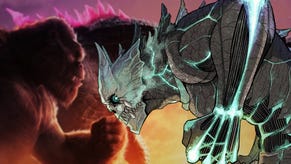
_ddwYK80.png?width=291&height=164&fit=crop&quality=80&format=jpg&auto=webp)
